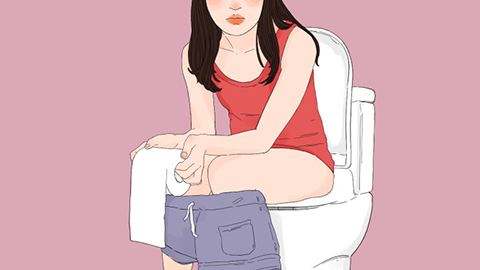What causes sudden urinary incontinence?
Generally, sudden urinary incontinence may be caused by不良 lifestyle habits, pelvic floor muscle relaxation, benign prostatic hyperplasia, cystitis, diabetes, and other factors. Symptomatic management through general treatments, medications, and other methods is usually required. If discomfort occurs, it is recommended to seek timely medical attention and undergo appropriate treatment under a physician's guidance. Detailed explanations are as follows:

1. Poor Lifestyle Habits
Poor lifestyle habits, such as prolonged urine retention, can overfill the bladder and damage the bladder muscles. Excessive water intake in daily life can also increase urine production, possibly leading to urinary incontinence, often accompanied by symptoms like frequent urination and urgency. It is recommended to improve lifestyle habits, such as timed voiding and moderate water intake, which can help alleviate symptoms of urinary incontinence.
2. Pelvic Floor Muscle Relaxation
Pelvic floor muscle relaxation is commonly seen in women, especially those who have given birth or elderly women. During pregnancy and childbirth, the pelvic floor muscles may be excessively stretched, or they may gradually relax with aging, leading to weakened function of the urethral sphincter and reduced ability to control urine. Patients may experience urinary incontinence while coughing, laughing, or exercising. Pelvic floor muscle exercises, such as Kegel exercises, are recommended to strengthen the pelvic floor muscles.
3. Benign Prostatic Hyperplasia
Benign prostatic hyperplasia (BPH) is caused by a combination of factors, including aging, androgen effects, and other influences. Enlargement of the prostate gland compresses the urethra, affecting normal urine outflow. When bladder pressure exceeds urethral resistance, urinary incontinence may occur, often accompanied by symptoms such as frequent urination, urgency, and increased nocturia. It is recommended to use medications such as tamsulosin hydrochloride sustained-release capsules, Qianlieshutong capsules, and Longbisha capsules under a physician's guidance for treatment.
4. Cystitis
Cystitis may be triggered by bacterial infection, existing bladder stones, or impaired urination function. In cases of cystitis, the bladder mucosa becomes irritated, causing excessive contraction of the bladder muscles and impairing effective control of urine storage and excretion, leading to urinary incontinence. Symptoms may include frequent urination, urgency, and painful urination. It is recommended to use medications such as cefadroxil granules, amoxicillin granules, and erythromycin tablets under a physician's guidance for treatment.
5. Diabetes
Diabetes primarily results from defects in insulin secretion or impaired biological function, leading to elevated blood glucose levels. Prolonged hyperglycemia may cause nerve damage, affecting the function of the bladder and urethral sphincter, leading to urinary incontinence. Symptoms may include increased thirst, frequent urination, and weight loss. It is recommended to follow medical advice to use medications such as insulin glargine injection, insulin aspart injection, and insulin degludec injection to alleviate symptoms.
It is recommended to maintain regular作息 and appropriate water intake in daily life, avoiding prolonged sitting and urine retention, which can help reduce the risk of urinary system diseases.




